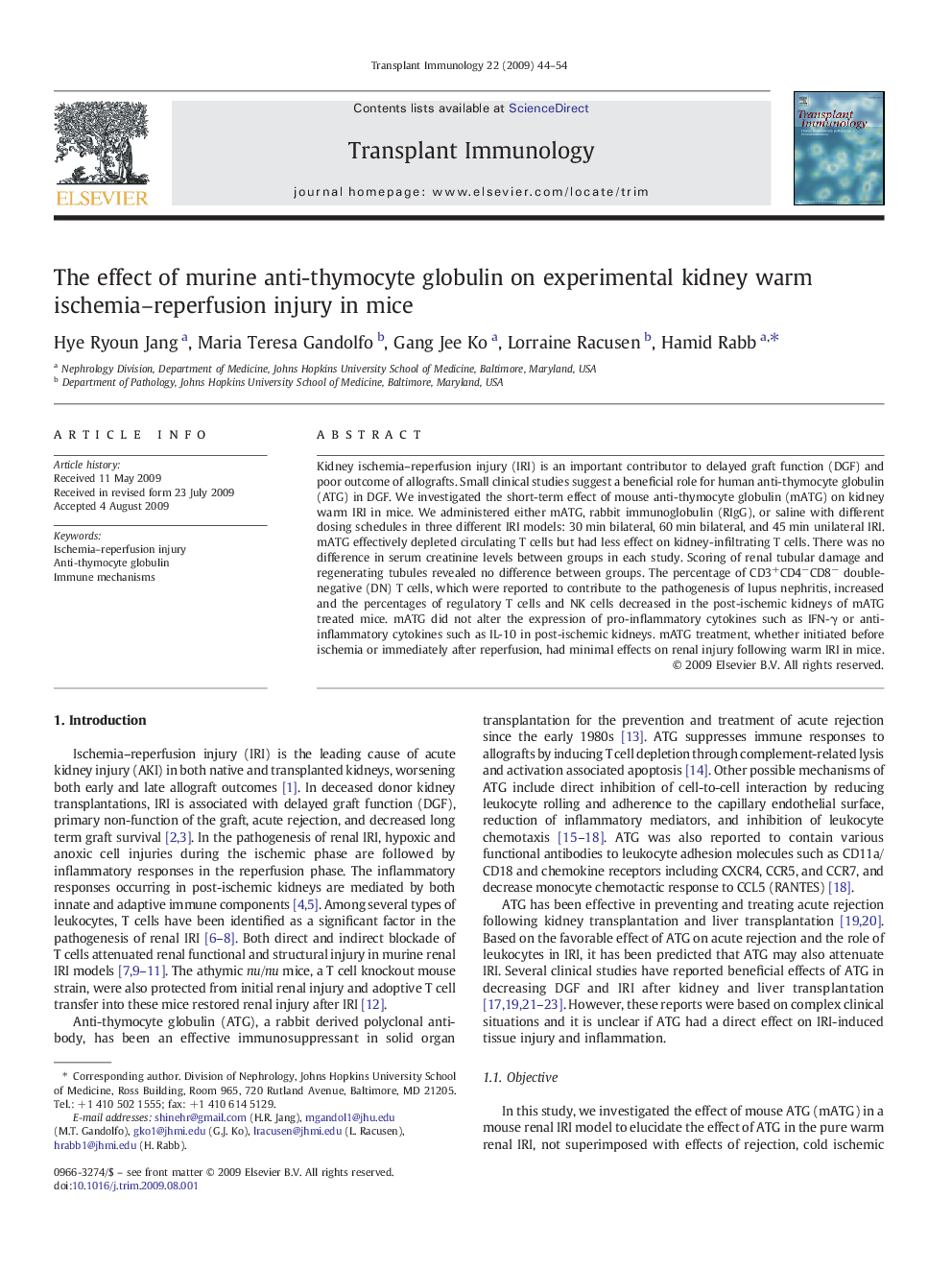| Article ID | Journal | Published Year | Pages | File Type |
|---|---|---|---|---|
| 3392394 | Transplant Immunology | 2009 | 11 Pages |
Kidney ischemia–reperfusion injury (IRI) is an important contributor to delayed graft function (DGF) and poor outcome of allografts. Small clinical studies suggest a beneficial role for human anti-thymocyte globulin (ATG) in DGF. We investigated the short-term effect of mouse anti-thymocyte globulin (mATG) on kidney warm IRI in mice. We administered either mATG, rabbit immunoglobulin (RIgG), or saline with different dosing schedules in three different IRI models: 30 min bilateral, 60 min bilateral, and 45 min unilateral IRI. mATG effectively depleted circulating T cells but had less effect on kidney-infiltrating T cells. There was no difference in serum creatinine levels between groups in each study. Scoring of renal tubular damage and regenerating tubules revealed no difference between groups. The percentage of CD3+CD4−CD8− double-negative (DN) T cells, which were reported to contribute to the pathogenesis of lupus nephritis, increased and the percentages of regulatory T cells and NK cells decreased in the post-ischemic kidneys of mATG treated mice. mATG did not alter the expression of pro-inflammatory cytokines such as IFN-γ or anti-inflammatory cytokines such as IL-10 in post-ischemic kidneys. mATG treatment, whether initiated before ischemia or immediately after reperfusion, had minimal effects on renal injury following warm IRI in mice.
